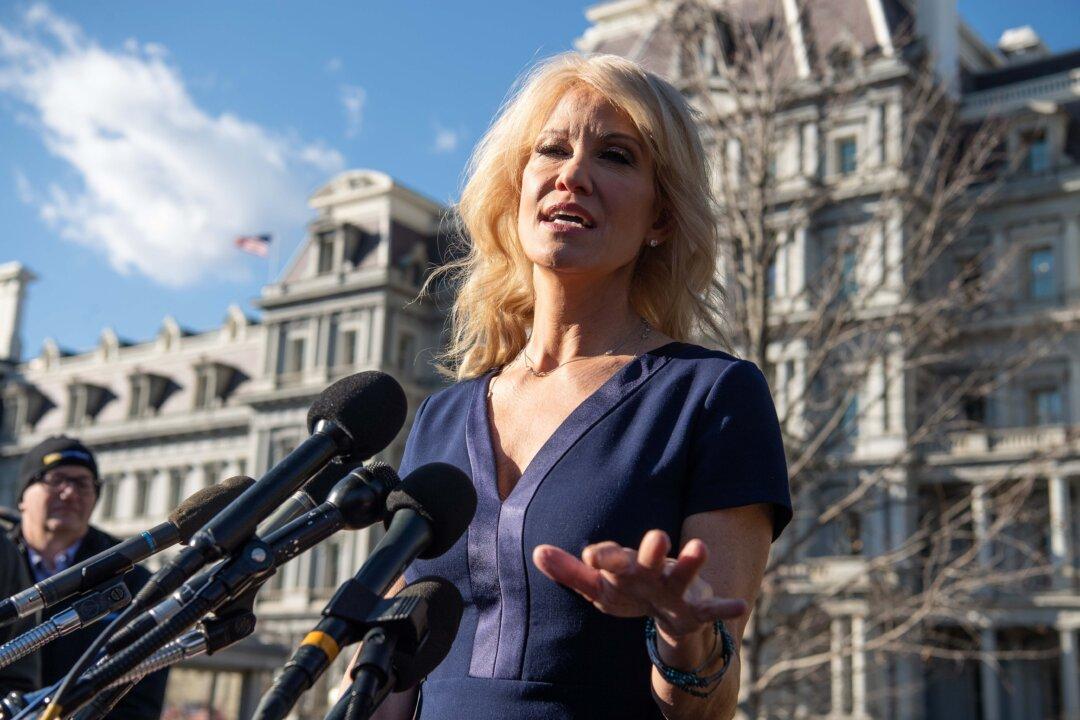White House counselor Kellyanne Conway said President Donald Trump is fine with Americans demonstrating against stay-at-home orders but encouraged them to follow federal social-distancing guidelines to prevent the spread of COVID-19.
“We need physical distancing of six feet, wear that face covering, that mask,” Conway told Fox News on Monday.





